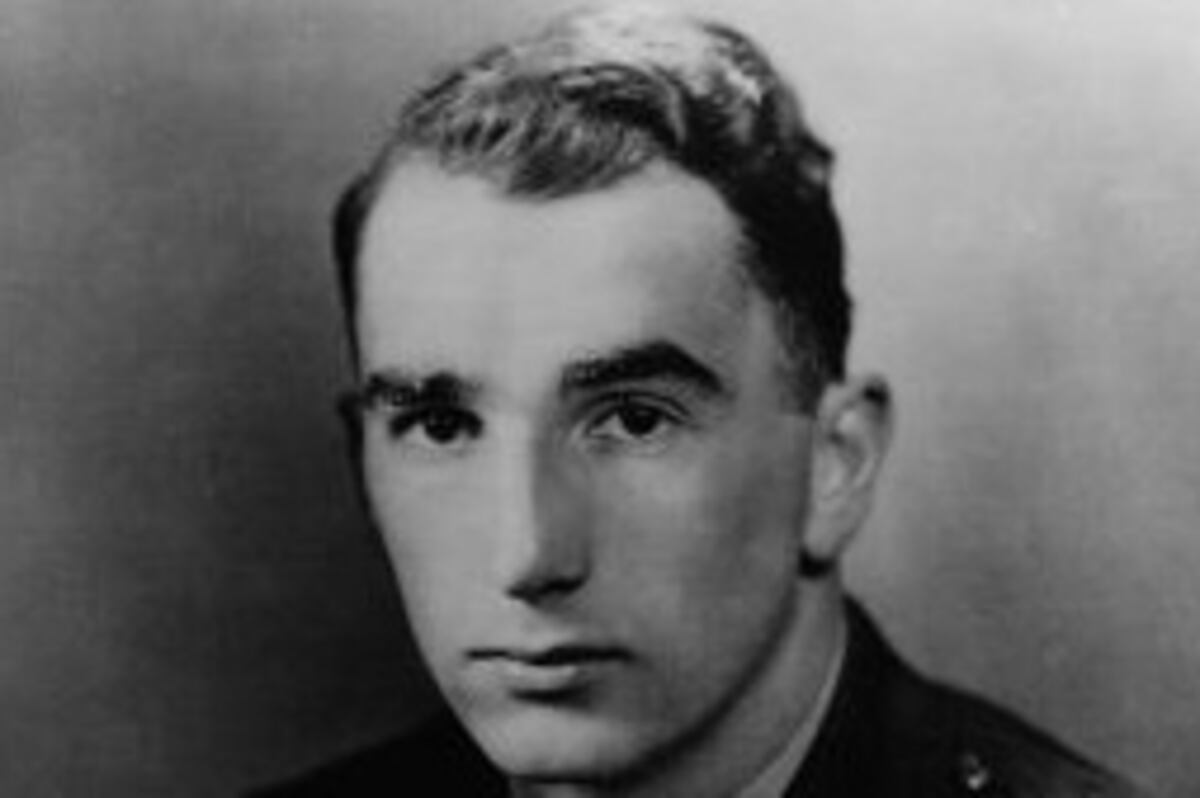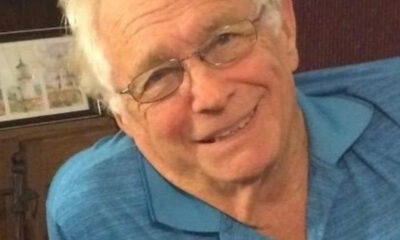World
First Helicopter Pilot Awarded Medal of Honor: John Koelsch’s Legacy

John Koelsch, a pioneering aviator from the Korean War, became the first helicopter pilot to receive the Medal of Honor for his extraordinary bravery during a rescue mission. His actions have left an enduring legacy in military aviation history.
From Early Life to Military Service
Born on December 22, 1923, in London, England, to American parents, Koelsch moved to the United States at a young age, settling in Briarcliff Manor, New York. He enrolled at Princeton University on September 1, 1941, but his academic pursuits were interrupted when the United States entered World War II. He enlisted in the United States Naval Reserve on September 14, 1942, where he began his journey into aviation.
Commissioned as an ensign on October 23, 1944, Koelsch served in the Pacific theater, flying TBM Avengers. After the war, he returned to Princeton to complete his education, graduating in 1949. Although he intended to pursue a career in law, the outbreak of the Korean War on June 25, 1950, prompted him to switch from reserve to active duty, transitioning from fixed-wing aircraft to helicopters.
A Heroic Rescue Mission
Stationed aboard the USS Princeton, Koelsch became known for his innovative approaches to rescue operations, particularly during the harsh winters of Korea. According to the Department of Defense, he created devices that improved operational efficiency and developed a floating sling hoist, which played a crucial role in a daring rescue mission on July 3, 1951.
On that day, Koelsch received urgent communication about Marine Capt. James V. Wilkins, whose Vought F4U Corsair had been struck by North Korean anti-aircraft artillery. Despite being unarmed and lacking fighter escort, Koelsch and his crewmate, Petty Officer 3rd Class George Neal, launched their helicopter into enemy-held territory. Faced with thick overcast and heavy ground fire, they bravely pressed on.
Wilkins, suffering from severe injuries, described Koelsch’s actions as “the greatest display of guts I’ve ever seen.” Neal descended using the rescue device, exposed to enemy fire, to reach Wilkins. Just as they made contact and attempted to lift off, their helicopter was hit and crashed on a mountaintop. Fortunately, neither Koelsch nor Neal sustained serious injuries.
For the next nine days, Koelsch provided care for Wilkins with the limited resources available until they were discovered and taken prisoner. During this time, he showed remarkable resilience, communicating with a North Korean soldier to ensure Wilkins received proper medical treatment. Despite enduring torture during interrogation, Koelsch and Neal remained steadfast and did not divulge any information.
Legacy and Recognition
After the Korean War armistice was signed at Panmunjom on July 27, 1953, Neal and Wilkins were among the surviving United Nations prisoners of war released, but Koelsch was not. Records indicate that he tragically died of malnutrition and dysentery on October 16, 1951.
Koelsch’s heroism did not go unrecognized. On August 3, 1955, he was posthumously awarded the first Medal of Honor given to a helicopter pilot. He also received the Purple Heart and the POW Medal. In 1965, the destroyer escort Koelsch (DE-1049) was named in his honor, later redesignated as a missile frigate in 1975.
Neal, who was one of the first Black helicopter crewmen in the Navy, received the Navy Cross for his bravery during the mission. He passed away on December 1, 2016, at the age of 86, and both he and Koelsch are interred at Arlington National Cemetery.
John Koelsch’s story serves as a powerful reminder of the courage and sacrifice displayed by military personnel, paving the way for future generations of aviators. His legacy continues to inspire those who serve in the armed forces today.
-

 Top Stories4 weeks ago
Top Stories4 weeks agoNew ‘Star Trek: Voyager’ Game Demo Released, Players Test Limits
-

 World4 weeks ago
World4 weeks agoGlobal Air Forces Ranked by Annual Defense Budgets in 2025
-

 World4 weeks ago
World4 weeks agoMass Production of F-35 Fighter Jet Drives Down Costs
-

 Science4 weeks ago
Science4 weeks agoTime Crystals Revolutionize Quantum Computing Potential
-

 World4 weeks ago
World4 weeks agoElectrification Challenges Demand Advanced Multiphysics Modeling
-

 Business4 weeks ago
Business4 weeks agoGold Investment Surge: Top Mutual Funds and ETF Alternatives
-

 Top Stories4 weeks ago
Top Stories4 weeks agoDirecTV to Launch AI-Driven Ads with User Likenesses in 2026
-

 Lifestyle4 weeks ago
Lifestyle4 weeks agoDiscover Reese Witherspoon’s Chic Dining Room Style for Under $25
-

 Entertainment4 weeks ago
Entertainment4 weeks agoFreeport Art Gallery Transforms Waste into Creative Masterpieces
-

 Health4 weeks ago
Health4 weeks agoGavin Newsom Critiques Trump’s Health and National Guard Plans
-

 Business4 weeks ago
Business4 weeks agoUS Government Denies Coal Lease Bid, Impacting Industry Revival Efforts
-

 Science4 weeks ago
Science4 weeks agoRemembering David E. Brest: A Life Dedicated to Nature and Family








